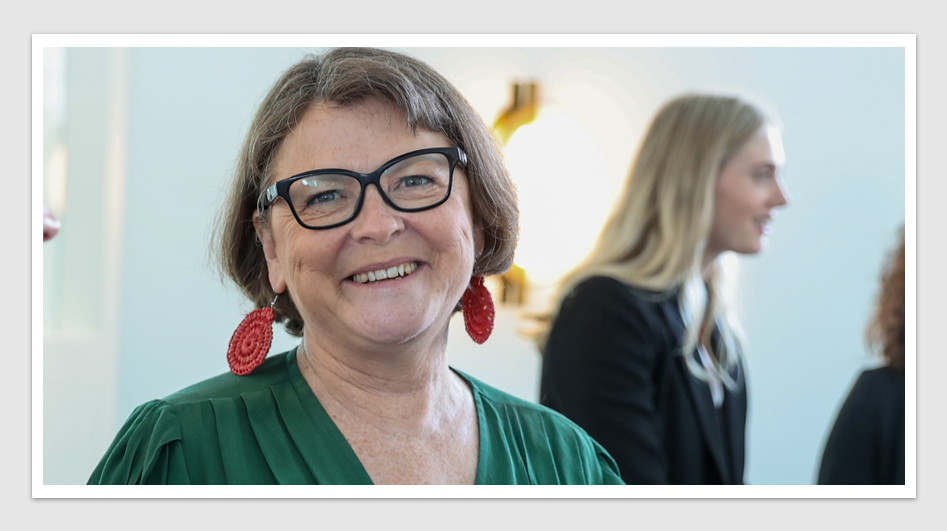Leadership & Management
COVID-19 wiping out hard-won gains by women in STEM

Hard-won gains for women’s advancement in the science, technology, engineering and maths (STEM) workforce are now at risk of a major setback due to the COVID-19 pandemic.
Australia’s scientific and technical services industry recorded job losses of 5.6% from mid-March to mid-April 2020, with jobs down 6.3% for women compared with 4.8% for men in this field.
The findings are in a research report requested by the Minister for Industry, Science and Technology, the Hon Karen Andrews MP.
The report was produced by the Rapid Research Information Forum, a group of 35 research sector lead organisations. The forum is chaired by Australia’s Chief Scientist, Dr Alan Finkel, and its operations are led by the Australian Academy of Science.
 Register FREE & join 22,000+ industry professionals in reading the latest industry news & engaging content from Health Industry Hub, the ONLY one-stop-hub connecting Australia’s Pharma, MedTech and Biotech industry professionals.
Register FREE & join 22,000+ industry professionals in reading the latest industry news & engaging content from Health Industry Hub, the ONLY one-stop-hub connecting Australia’s Pharma, MedTech and Biotech industry professionals.
Lead author Professor Emma Johnston AO FTSE, Dean of Science at UNSW Sydney, said the peer-reviewed report confirms an urgent need for STEM employers to closely monitor and mitigate the gender impact of the pandemic on jobs and careers or the hard work over many years to recruit and retain more women in STEM could be undone.
“The challenges are likely to be most acute for women in STEM with children under 12,” Professor Johnston said.
“The combination of juggling working from home while supervising distance learning for children has made women’s well documented ‘double burden’ even greater again.”
 In alignment with the Government’s mental health initiative the #SelfcareInHealthcare campaign has been launched to support Pharma, Biotech and MedTech industry professionals. The initiative is supported by Medicines Australia, AusBiotech, MTAA and ARCS Australia. Learn more.
In alignment with the Government’s mental health initiative the #SelfcareInHealthcare campaign has been launched to support Pharma, Biotech and MedTech industry professionals. The initiative is supported by Medicines Australia, AusBiotech, MTAA and ARCS Australia. Learn more.
Science & Technology Australia (STA) and the Australian Academy of Technology and Engineering (ATSE) collaboratively led the women in STEM RRIF report.
ATSE Chief Executive Officer, Kylie Walker said diversity in the workforce is integral to higher quality and more resilient STEM research and application.
“The diverse perspectives that women bring to the STEM sector enable and drive better outcomes for scientific and technology-based industries,” Ms Walker said.
Science & Technology Australia CEO Misha Schubert said job insecurity was even more of a risk for women than men in the STEM workforce.
“With casual and short-term contract jobs likely to be the first to go, women are at particular risk, with women in STEM one and a half times more likely to be in insecure jobs,” she said.
The co-authors agreed the report was a reminder to STEM employers about the need for them to be vigilant on gender equity or they risk losing their hard-won gains.
Report Key Findings
- Women are a minority in STEM professions. Based on disparities in the distribution of domestic workloads and reduced career opportunities compared to men, this pandemic is expected to disproportionately hinder women’s STEM careers.
- Early evidence on the impact of the epidemic suggests women face disproportionate increases in caring responsibilities and disruptions to working hours, job security and paid work capacity. This is most acute for those with children under 12.
- Job insecurity is emerging as an even more troubling issue for women in STEM than for men. High proportions of women employed in short-term contract and casual jobs are likely to be threatened by cuts to research and teaching jobs.
- Women from diverse backgrounds face additional barriers to entry, retention and progression in the STEM workforce. Anticipated COVID-related funding cuts to equity programs would set back gains in STEM workforce diversity.
- Evidence demonstrates the benefits of diverse research workforces and the risks of homogenous research workforces, highlighting the need to hold gains made by women in STEM in recent years.
- Hard-won gains by women in STEM are especially at risk. This risk will be even greater if STEM employers do not closely monitor and mitigate the gender impact of their decisions.
News & Trends - MedTech & Diagnostics

Bariatric surgery trumps Novo Nordisk’s Wegovy in cost-effectiveness and durability
MedTech & Diagnostics News: Bariatric surgery emerges as cost-effective, boasting superior and enduring weight loss outcomes over a five-year span […]
MoreNews & Trends - Pharmaceuticals

Aussie digital health company hits new milestone in AstraZeneca partnership
Pharma News: Fewer than 50% of asthma patients adhere to their prescribed preventative medications. An Australian digital health company has […]
MoreDigital & Innovation

Medical drone to reduce health equity gaps in rural and remote Australia
A specialised medical drone which increases accessibility to essential health services such as pathology, medicines, and telehealth services in rural […]
More